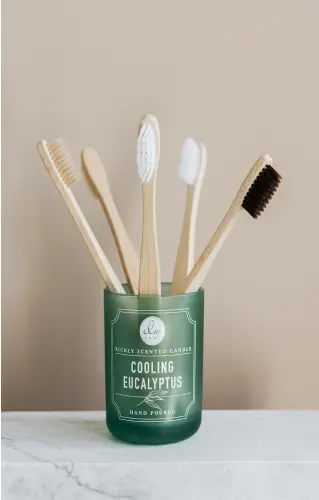Home / Common Problems
One Question at a Time: Solutions for Common Dental Problems.
Give us a call, book an appointment online, or visit us
We know that sometimes health professionals can speak in complex terminology and nothing really makes sense. At other times, sometimes we discuss things but the minute you get home, everything is forgotten. That is why we often email our treatment plans and letters and also send helpful information sheets. We do not expect everyone to listen to every single word we say. Please do not hesitate to ask us, call us or email us and we will try our best to sort out the answer for you!
In the meantime, here are some common problems that people have with their teeth and their causes, signs and symptoms, prevention and treatment. We hope this provides some answers for you in the meantime!

To maintain good oral health it is imperative to see the dentist every 6 months for a comprehensive check up and a professional dental cleaning. If any problems arise, this allows the Dental Professional to pick it up early while it may be easier to sort out. It is also important to visit the dentist to do an oral cancer check of your soft tissues.
If you don’t have any teeth, it is still important to visit the Dentist at least yearly to check your soft tissues of your mouth as part of oral cancer screening
If you are at higher risk of decay or gum disease (Periodontal Disease) then you may need to see the dentist more often (e.g. every 3-4 months)
We suspect the answer that we give you might not be the one you are looking for! YES, YES a thousand times YES! Flossing is the simplest way to maintain good health for your teeth and gums. Once you’re good at flossing, it will take less than 30 seconds to clean your whole mouth and you can feel the difference!
There are alternative options to flossing with a conventional floss string. You can try Floss on a stick (e.g. Flossettes/floss pick) or Interdental Brushes e.g. Piksters (https://piksters.com/) OR TePe (https://www.tepe.com/au/) or similar. Ask your Dental Professional to show you because a demonstration is the easiest way to learn.
Fluoride is a naturally occurring element present in mineral salts found in rocks, soil, natural water sources, plants, and animals.
The scientific examination of community water fluoridation and the broader use of fluorides for preventing tooth decay is regularly evaluated on a global scale. In every instance, the findings consistently support the continued implementation of community water fluoridation programs.
According to the National Health and Medical Research Council (NHMRC), water fluoridation decreases tooth decay rates by 26 to 44% in children and adolescents, and by approximately 27% in adults. Recent research conducted in Australia suggests that early access to fluoridated water is linked to reduced tooth decay in adults.
Fluoridation has been the most effective public health initiative that has been implemented for oral health outcomes in Australia, along with Fluoridated toothpaste.
A simple answer would be Yes! For most people, because the electric toothbrush does the circular motion for you, it will clean your teeth more thoroughly. Additionally because most electric toothbrushes have a timer, it ensures that you don’t get away with a quick 30 second brushing session! It is especially good for kids.
If you are doing a great job with brushing with a manual toothbrush, there is no need for swapping to an electric. The main thing is ensuring you are using a soft toothbrush and doing circular actions to brush the teeth and gums
The most important ingredient in toothpaste is Fluoride! Ensure you are using an age appropriate Fluoridated toothpaste. There are lower fluoride toothpastes for kids to use but once they are 6 years old (or in some cases a bit younger), they should be using an adult fluoridated toothpaste.
Ensure you don’t rinse out the toothpaste, just spit out the excess and leave the rest on your teeth to have the desired effect.
If you have sensitive teeth, you can consider a fluoridated sensitive toothpaste.
If you are at higher risk of decay, your dental professional may suggest a higher fluoride toothpaste.
If you don’t like the taste of minty adult toothpaste, rest assured, there are many options for new flavours of fluoridated toothpaste!
"*" indicates required fields
Monday:
9:00 am - 6:00 pm
Tuesday:
8:30 am - 6:00 pm
Wednesday:
8:30 am - 6:00 pm
Thursday:
8:30 am - 6:00 pm
Friday:
8:30 am - 5:00 pm
Saturday:
9:00 am - 1:00 pm
Sunday:
Closed
Established in 2016, Cranbourne North Dental was conceived with the mission to deliver comprehensive and compassionate care to the local Cranbourne community.





Select your desired option below to share a direct link to this page.
Your friends or family will thank you later.